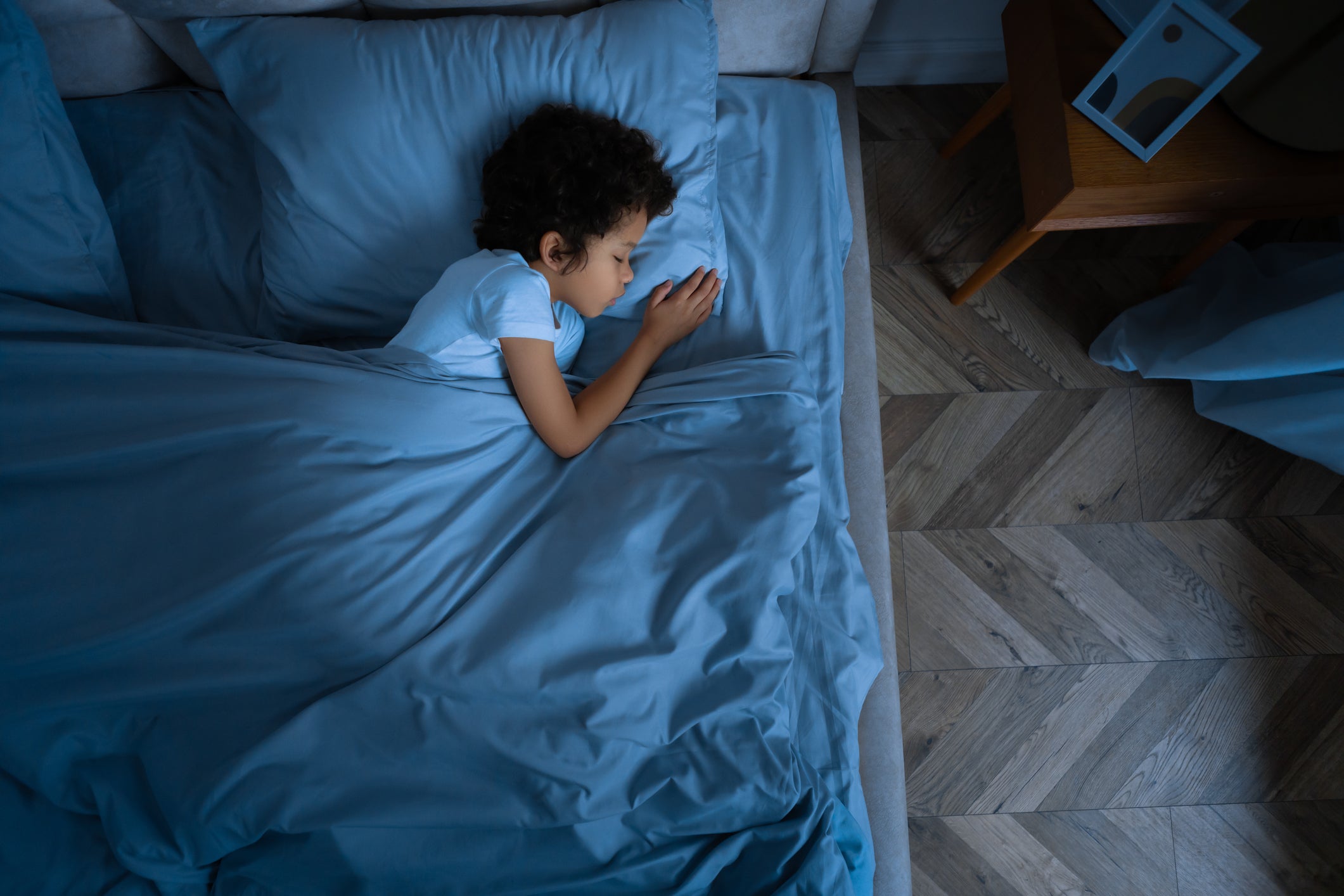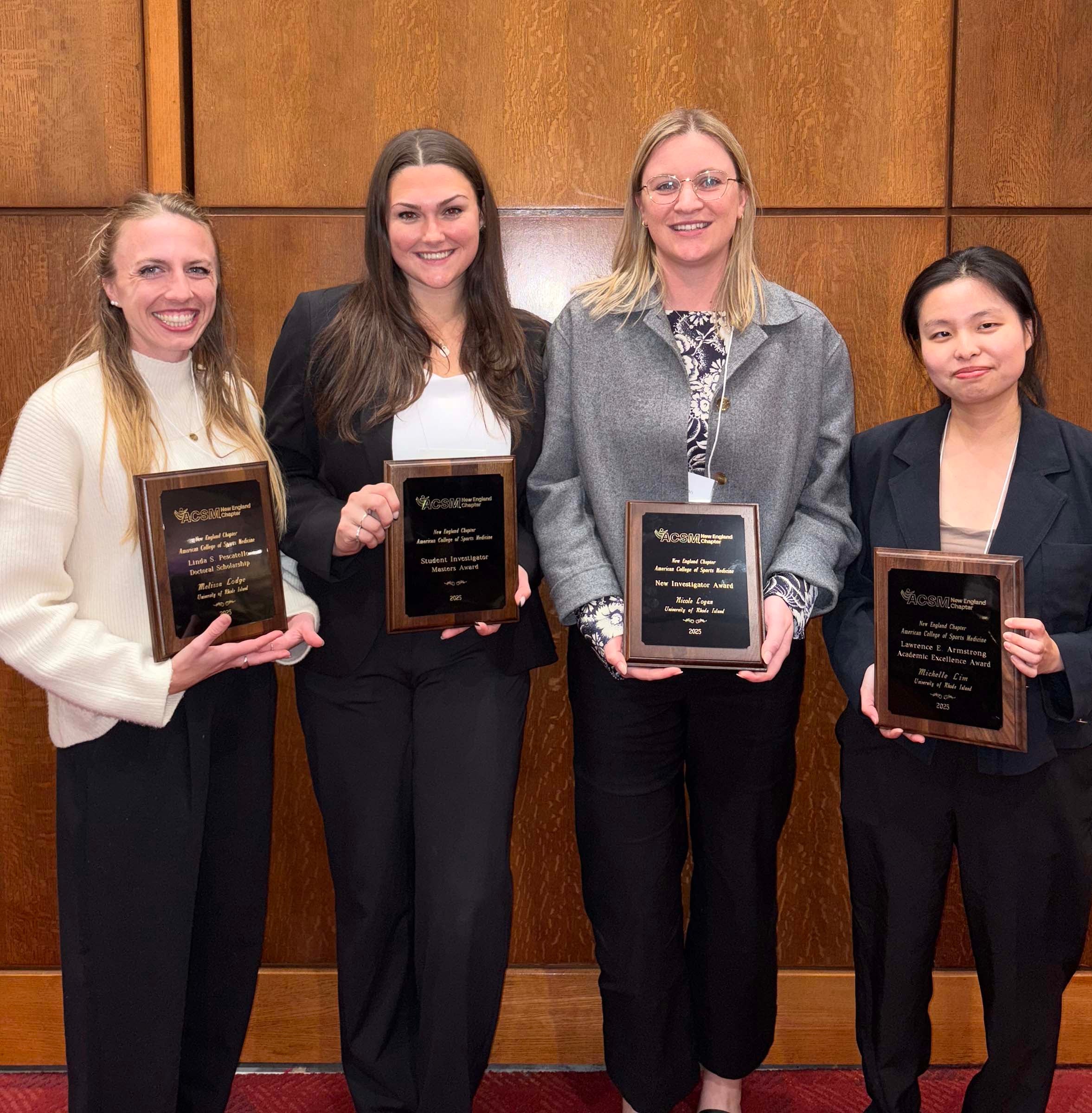Researchers from URI find no evidence to justify ‘cocoon therapy’ for pediatric concussions
KINGSTON, R.I. – Oct. 22, 2025 – Through the 1990s and early 2000s, guidelines for treating a concussion called for complete mental and physical rest. Current guidelines recommend a gradual resumption of cognitive and physical activity while consistently remaining engaged in typical daily activities as much as possible, but many clinicians are still following outdated guidelines and are advising patients to avoid sensory stimulation and activity following a concussion.
“Some providers likely misinterpret ‘rest’ as calling for total sensory deprivation—dark room, no reading, no screen time—rather than minimizing activities that worsen symptoms, but maintaining light engagement in normal routines,” said Nathan Cook, assistant professor of psychology in the University of Rhode Island’s College of Health Sciences.
Cook led a team of researchers from URI in a study to find published evidence supporting restrictive approaches for treating pediatric concussions, an approach that became known as “cocoon therapy” or “cocooning.” The results of their research is published in a peer-reviewed article in the Journal of Pediatric Neuropsychology in October.
The URI study focused on pediatric concussions, as opposed to concussions in adults. Prior to joining the URI faculty in fall 2024, Cook—whose expertise is in pediatric neuropsychology—worked in the Massachusetts General Hospital Sports Concussion Clinic, which provides care for children, adolescents, and college-aged young adults who have sustained concussions.
“At Mass General, I provided treatment for countless individuals with concussions and heard many times that they had been counseled to ‘cocoon’ and to avoid sensory stimulation and cognitive activity,” said Cook. “We now know that overly restrictive approaches can increase stress, fuel symptom hypervigilance, and disrupt the natural return to normal routines. In some cases, this kind of advice can lead to iatrogenic effects, where the prescribed management worsens outcomes rather than improves them.
“Imagine being a parent whose child just suffered a concussion—you’re anxious, uncertain, and desperate to help them heal,” said Cook. “Then you’re told to isolate your child in a dark room, to prevent them from going to school, seeing friends, or even using a screen. That kind of guidance can feel alarming, even frightening. It sends a message that the brain is so fragile it must be completely shut off from the world to recover. But that advice not only lacks evidence—it may delay recovery.”
According to Cook, official concussion guidelines shifted from 2015–2020 toward “active rehabilitation,” which involves gradually increasing the level of physical and cognitive activity and remaining engaged in typical daily activities and routines as much as possible.
The research team hand-searched four academic databases for peer-reviewed research studies that included predominantly children and/or adolescents who sustained concussions and were specifically told, advised, or prescribed some form of restrictive or avoidance-based treatment.
Of the 52 full-text articles evaluated, nine studies met the criteria for inclusion in the research team’s analysis. The studies were conducted in the United States and published between 2012 and 2022. Four of the studies included overlapping samples. The seven unique samples included 646 youth. None of the studies mentioned the use of “cocoon therapy” by name or the use of a dark room, bed rest, or sensory deprivation.
Yet the question remains, if concussion guidelines were updated from 2015–2020 and research studies haven’t shown that “cocoon therapy” is effective, why is it still being recommended by healthcare providers?
“Unfortunately, there is a knowledge-to-practice gap, leaving some clinicians slow to adapt to updated guidance,” stated Cook. “I believe that continuing to recommend ‘cocooning’ reflects habitual practice patterns or reliance on outdated guidelines rather than deliberate opposition to evidence. Further, some providers may recommend these strategies out of an abundance of caution, worrying that too much stimulation could worsen symptoms or lead to slower recovery somehow.”
Cook suggested that taking an approach that is overly cautious could have adverse effects.
“It can backfire, as prolonged inactivity often slows recovery, increases anxiety, and reinforces avoidance behaviors, which can further contribute to prolonged symptoms and problems,” said Cook.
The professor recommends that patients seek advice from providers who are well-versed on current, scientifically supported treatment methods.
“Many clinicians who see concussed patients, such as those who work in primary care, urgent care, or emergency settings, may not specialize in brain injury or sports medicine,” said Cook. “Without access to continuing education or specialized concussion networks, their information may come from older materials or anecdotal experience.”
Cook said official concussion guidelines currently include:
- Continuing typical activities of daily living
- Engaging in aerobic exercise below the level that would provoke symptoms, such as light walking or pedaling a stationary bicycle
- Gradually increasing exercise intensity as symptoms improve
“These approaches are supported by growing evidence that aerobic exercise can hasten recovery and are now considered standard best practice for pediatric concussion management,” said Cook.
Latest All News
- Mapping volcanoes’ ‘hidden’ structures may help predict severity and timing of eruptionsKINGSTON, R.I. – Oct. 31, 2025 – In an effort to predict volcanic eruptions sooner and more accurately, students from the University of Rhode Island’s Graduate School of Oceanography (GSO) are studying the rift zones of two of the most active volcanoes in the world, Hawaii’s Kilauea and Mauna Loa. A volcanic rift zone is a […]
- TEDxURI 2026 seeks presenters to share perspective on what’s “funny”KINGSTON, R.I. – Oct. 30, 2025 – The meaning of funny goes beyond a simple joke. A google search for the definition will bring up a multitude of definitions. Other words associated with funny include questionable, as in “something funny is going on;” it can also describe a sensation. Anyone who’s been to the doctor […]
- Students and faculty from URI Department of Kinesiology earn awards at regional conferenceKINGSTON, R.I. – Oct. 29, 2025 – The Department of Kinesiology in the University of Rhode Island’s College of Health Sciences had a major presence at New England Chapter of the American College of Sports Medicine (NEACSM) fall meeting at the MassMutual Center in Springfield, Massachusetts, earlier this month. URI students and faculty stood out […]
- URI launching new Environmental Arts and Humanities bachelor’s degreeKINGSTON, R.I. – Oct. 29, 2025 – Citing a need for writers, thinkers and artists to help clarify complex environmental issues and the science surrounding them, the University of Rhode Island is introducing a new Environmental Arts and Humanities bachelor’s degree. The University’s new 33-credit degree program will equip students with a more holistic approach […]
- Yoshitaka Ota awarded inaugural Taiwan Peace FellowshipKINGSTON, R.I. – Oct. 29, 2025 – University of Rhode Island Marine Affairs Professor and Director of Nippon Foundation Ocean Nexus Yoshitaka Ota was recently awarded the Taiwan Peace Fellowship, a fellowship that brings together leaders and scholars from around the world in Taiwan to gain a deeper understanding of the country’s historical and cultural […]
- Rhody Athletics, AEM, LLC. Announce Partnership RenewalKINGSTON, R.I. – Rhode Island Athletics announced today an expanded collaboration with partner AEM, LLC., New England's premier home improvement experts. Entering its second year with URI, AEM has more than doubled its investment for the 2025-26 season.













